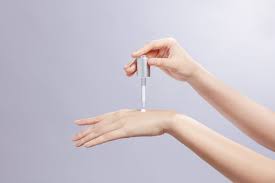Order online or call us: +86-153-0920-6328
- All
- Product Name
- Product Keyword
- Product Model
- Product Summary
- Product Description
- Multi Field Search
Home
Home / About Us / News / Contact Us
Home / About Us / News / Contact Us
Views: 15 Author: Site Editor Publish Time: 2023-03-01 Origin: Site
When looking at skin care labels, you may find some products that contain alpha-arbutin or deoxyarbutin, and others that contain beta-arbutin.Alpha-arbutin and deoxyarbutin are synthetic forms of arbutin, while beta-arbutin is a plant-derived form of arbutin."Both forms of arbutin inhibit melanin production, but studies have shown that alpha-arbutin is more stable and is estimated to be more than 10 times more potent than beta-arbutin.In fact,one review supports the potency of alpha-arbutin over its natural form.

When you're looking to brighten your complexion, you have plenty of options besides arbutin:Hydroquinone, kojic acid, and vitamin C are all known for their brightening potential. But how do they stack up? First off, hydroquinone creams are the gold standard skin lightening agents.But it can come with side effects,including irritation, stinging, contact dermatitis and skin discoloration (it has been banned in cosmetics in the European Union, Japan, Australia and some African countries, Chiu points out). First off, hydroquinone creams are the gold standard skin lightening agents.But it can come with side effects, including irritation, stinging, contact dermatitis and skin discoloration (it has been banned in cosmetics in the European Union, Japan, Australia and some African countries, Chiu points out). Kojic acid a brightening agent derived from certain fungi is very similar to arbutin, although arbutin tends to be the more stable of the two, says Chiu. Arbutin is generally not as effective as kojic acid.But Chiu added that the two ingredients can be used together.Vitamin C is an antioxidant that also helps brighten the complexion.Combining arbutin and vitamin C enhances the benefits of each.
The good news is that arbutin tends to be milder and less irritating than other brighteners like hydroquinone."This is especially beneficial for patients with sensitive skin.However, if you suffer from acne or a skin condition such as rosacea, consult your doctor before using new products, including those containing arbutin.Dermatitis or contact dermatitis (skin irritation from exposure to an allergen) is a possible side effect of using arbutin.Symptoms to look out for include redness, itching, dryness, blisters, or a rash.